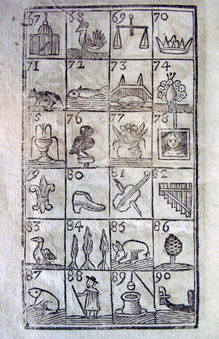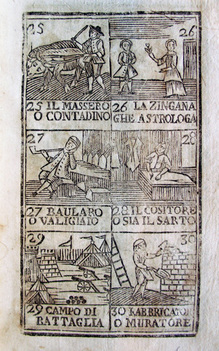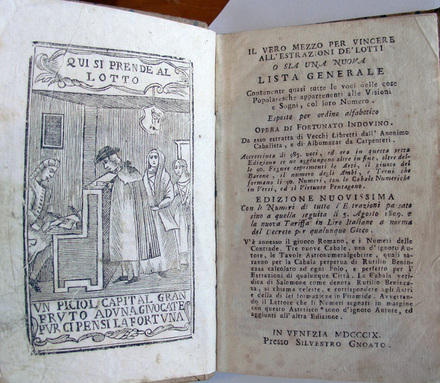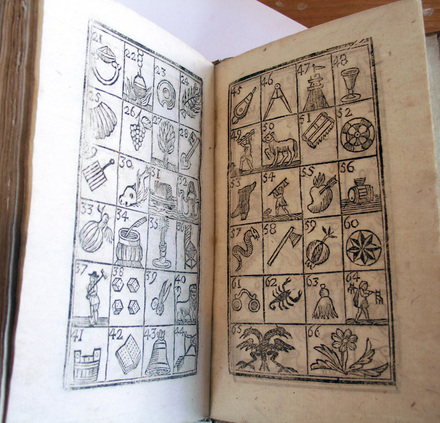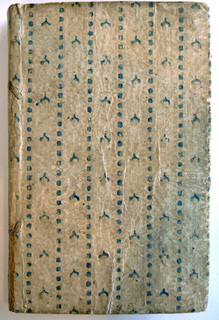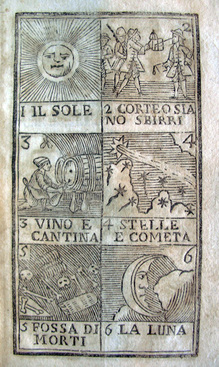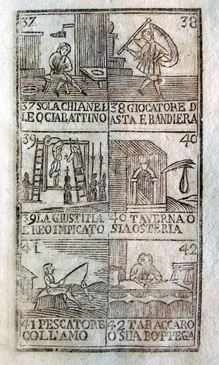Fortunato Indovino, Il vero mezzo per vincere all’estrazione de’ lotti, o sia una nuova lista generale contenente quesi tutte le voci delle cose popolaresche appartenenti alle visioni e sogni, col loro numero. Esposte per ordine Alfabetico [The Surest Means to Win the Lottery Drawing, or a New General List Containing Entries for All the Everyday Things Found Inside Visions and Dreams, With Their Numbers. In alphabetical order] (Venice: Sylvester Gnoato, 1809). Frontispiece and 19 plates of woodcuts, with an additional full-page woodcut dated 7 February 1754.
Lottery dream books or guidebooks were popular in the eighteenth and nineteenth century but few have survived. An astrologer using the pseudonym Fortunato Indovino, or Lucky Guesser, wrote one in 1754 that was reissued many times over more than eighty years. This Venetian edition is small and light, easy to carry with you throughout the day.
According to historian Susan Nicassio:
“Fortunato gave reassuringly complicated rules for ‘knowing the right, and precise, number not only for ambos and ternos, which make up the numbers that will be played, but please God, of all 90 numbers on the list’. The method for choosing numbers has been described as cabalistic and it is a good word. One technique was to select a number, then multiply it by its nearest inferior; then take half of the product of this multiplication, and that half gave the number you want for the ambo.”
“For example, you may decide (from a dream…) that the appropriate symbol for you this week is a dog. The number for a dog, in the Roman lottery, is 17. You multiply 17 by 16, its nearest inferior, and arrive at 272. Half of 272 is 136. So the number you want for the ambo is 136.”
“Dream books were in great demand for deciding the numerical meaning of dreams (a drowned man translated to 88). Events in everyday life had numbers. If a child in your family were ill with a fever, you would bet 18-28-48; if you had an unhappy or one-sided love affair, your number was 90.” — Susan Vandiver Nicassio, Imperial City: Rome, Romans, and Napoleon (Welwyn Garden City: Ravenhall, 2005). Firestone Library (F) DG812.7 .N53 2005
